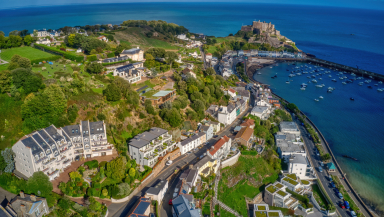
The Jersey Council of Ministers has put forward what have been described as final proposals for the legalisation of assisted suicide on the island.
Last year Jersey Deputies voted by 32 votes to 14 to permit assisted suicide. Now the Council of Ministers has outlined under what circumstances the procedure can be conducted.
New primary legislation will be required on the legal front, while logistically an assisted dying service will need to be created, if the proposal is to be executed.
Under the plans, which could see assisted suicide become legal by 2027, only those aged 18 and over with a terminal illness will be eligible. In addition, they must have been given a life expectancy of six months or less, or 12 months in the case of those with neurodegenerative conditions.
In addition, in an apparent attempt to prevent “death tourism”, only people who have been resident in Jersey for a year or more will be eligible.
Other provisions stipulate that those seeking to end their lives must have made an informed and voluntary decision to do so, and indeed must be mentally capable of doing so.
Jersey is just one of many jurisdictions to begin walking down the path towards assisted suicide.
The House of Commons voted in favour of assisted suicide earlier this year. The proposal has not become law, having yet to pass the House of Lords, which will be holding its Second Reading debate on the issue later this month.
Meanwhile Scotland has its own proposals, which are currently at the amendment stage. No timetable for the passage of the bill has been published, although the usual course of Scottish parliamentary business would suggest a final vote on the issue at some point in early or mid 2026.
France is currently considering similar proposals and in July Slovenian legislators voted in favour of the practice.
Assisted suicide is currently legal in Canada, Belgium, Switzerland, the Netherlands and a number of other jurisdictions.













